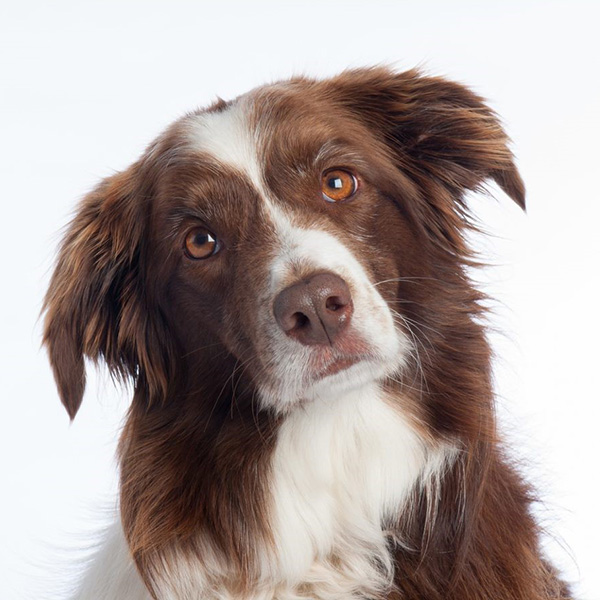RVC study into canine epilepsy helps owners identify triggers and predict seizures before they happen
An international study, which recruited owners of dogs diagnosed with epilepsy, has revealed various signs and changes in behaviours of dogs before a seizure.
These findings are an important step in helping owners not only have advance warning of seizures, but also to identify the triggers, including environmental factors and specific circumstances, that can be avoided to help reduce the number of seizures their dog experiences.

The research, carried out at the Royal Veterinary College (RVC) by PhD student, Dr Sarah Finnegan, and a multidisciplinary team of neurologists, behaviourists and biologists, found that nearly two thirds of owners reported pre-seizure changes in their dog (65%), most commonly stating clinginess, excessive energy, and unsettled sleep. These signs varied between dogs, with other common changes including clumsiness, excessive panting, becoming withdrawn or quiet, and lacking energy.
Nearly half of owners (43%) also reported seizure triggers, which commonly involved stress, food and excitement. A wide range of other triggers were reported by owners including loud noises, fireworks, storms, household products (cleaning products and air freshener), and preventative healthcare including flea and worming products and vaccinations.
Over half of owners (60%) believed they were able to predict an upcoming seizure in their dog by using a combination of pre-seizure changes and recognising triggers. Nearly half of these owners were able to do so 30 minutes or more before the seizure commenced.
Canine epilepsy is the most common long-term brain disorder in dogs and is characterised by recurrent seizures. Seizures are stressful for both the dog and owner and can appear unpredictable and uncontrollable. These findings are incredibly important in helping owners identify ways to predict upcoming seizures and improve management when they do occur. This insight will also help reduce owner stress by increasing the predictability of these distressing events, and potentially lead to ways to stop seizures in their tracks.
Dr Rowena Packer, BBSRC Research Fellow and research lead in canine epilepsy at the RVC, said: “It was fascinating to discover how in-tune many owners of dogs with epilepsy are with subtle changes in their dog’s behaviour before seizures. Many of our findings echo what is seen in human epilepsy patients and add evidence to support the presence of prodromal pre-seizure periods in dogs as well as people. Collecting further objective data to confirm these findings and explore ways to proactively utilise this period for seizure management are of priority for future research.
“This study also highlights how crucial it is that owners of dogs with epilepsy keep good records, not just of their dog’s seizures, but also of changes in behaviour and exposure to potential triggers, to gain a better picture of patterns in their dog’s seizure activity. The RVC Pet Epilepsy Tracker app allows owners to keep records, that can also be shared electronically with their vet and with RVC for further research.”
Research reference
Reference: FINNEGAN SL; VOLK HA; ASHER L; DALEY M; PACKER RMA (2020) Investigating the potential for seizure prediction in dogs with idiopathic epilepsy: Owner reported prodromal changes and seizure triggers.
The full paper is available in Veterinary Record: https://veterinaryrecord.bmj.com/content/early/2020/05/21/vr.105307
Notes to Editors
For more information please contact:
- Jasmin De Vivo (Jasmin.DeVivo@plmr.co.uk)
- Press Line: 0800 368 9520
About the RVC
- The Royal Veterinary College (RVC) is the UK's largest and longest established independent veterinary school and is a Member Institution of the University of London. It was the first in the world to hold full accreditation from AVMA, EAEVE, RCVS and AVBC.
- The RVC is the top veterinary school in the UK and Europe, and ranked as the world’s second highest veterinary school in the QS World University Rankings by subject, 2020.
- The RVC offers undergraduate and postgraduate programmes in veterinary medicine, veterinary nursing and biological sciences.
- In 2017, the RVC received a Gold award from the Teaching Excellence Framework (TEF) – the highest rating a university can receive.
- A research led institution with 79% of its research rated as internationally excellent or world class in the Research Excellence Framework 2014.
- The RVC provides animal owners and the veterinary profession with access to expert veterinary care and advice through its teaching hospitals and first opinion practices in London and Hertfordshire.
